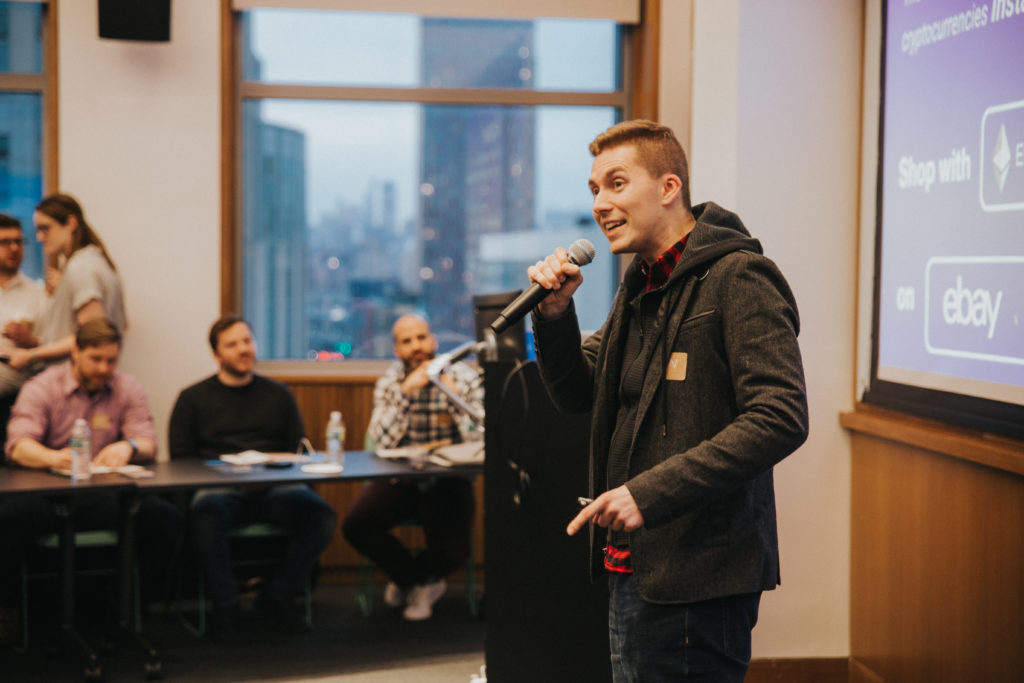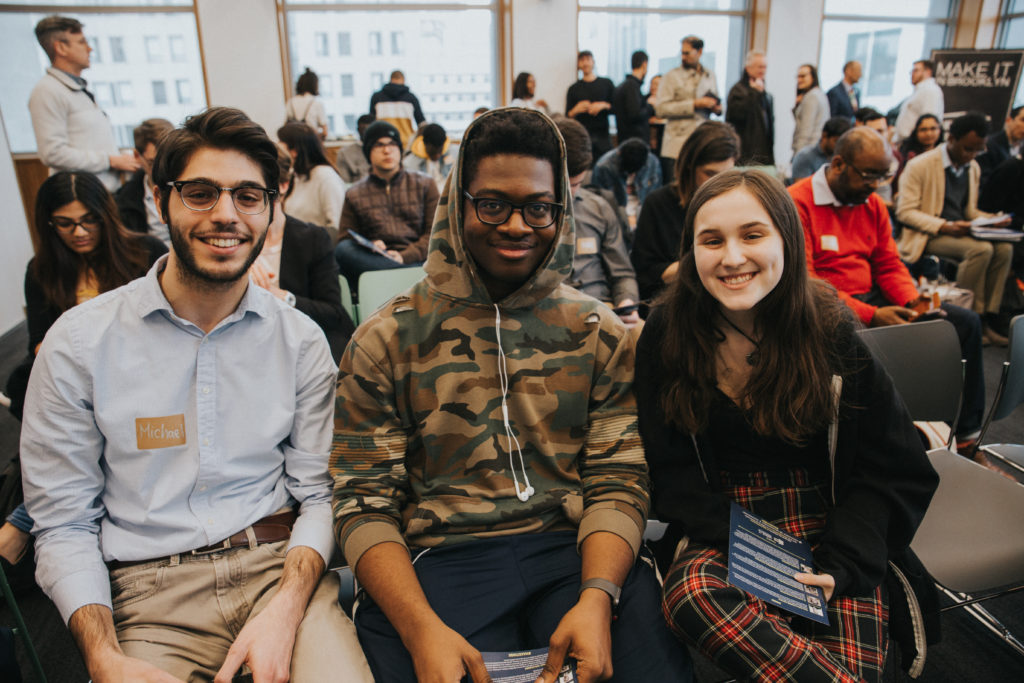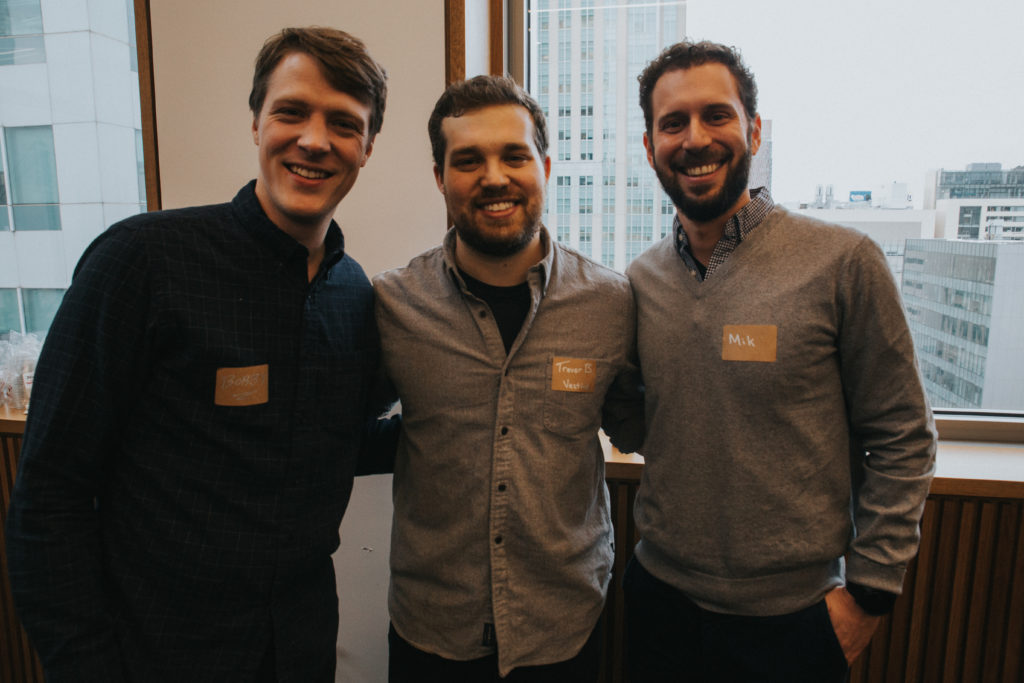If you polled people on the street today and asked them which cities are the “most successful homes for tech and start-up companies,” the first one that would come to mind for most is probably San Francisco, with its already storied Silicon Valley grandeur tipping the scales. But that’s not the municipality topping the list in a new study on the topic by Savills, a leading global real-estate service provider. It’s New York City.
“New York got points for its venture capital investment, which was billions of dollars greater than in San Francisco over the past three years,” Bloomberg said about the report. “That and plentiful transportation options helped offset the city’s poor score for real estate costs.”
Another important factor according to the study: New York’s access to talent, some of which was on bright display during a Shark Tank-inspired pitch competition last week.

Coordinated by the Downtown Brooklyn Partnership, an organization that supports business interests and improvements in the area, and set at the NYU Center for Urban Science + Progress (CUSP) on Jay Street, the Make It in Brooklyn FinTech pitch contest pitted five start-up entrepreneurs against one another, vying for a $5,000 cash prize. To win, all they had to do was convince five judges, over the course of just a three-minute pitch and a few Q&A exchanges, that their company could be the next tech-industry giant.
“I think the purpose is to really put the spotlight on how much innovation is happening in Brooklyn,” said Regina Myer, president of the Downtown Brooklyn Partnership. “Having places where people can come together, exchange ideas, recognize each other and build a community is really what the partnership is all about.”
Myer also opined that, even though the contest would produce a lone prizewinner, it offered the chance for all the contestants to practice pitching, with feedback provided by industry-insider judges. It was also an opportunity for the company leaders to show others in the local tech landscape the cutting-edge innovations they’re hatching in the realm of financial technology, or FinTech.
“Even if they don’t win, somebody might be in the audience who says, ‘Hey, I want to learn more’ or ‘I want to support them,’” Myer observed.

First up was Mik Breiterman-Loader, cofounder and CEO of Vestive, a company developing an investing platform that “helps people reach their financial goals, while considering environmental and social impact.” He explained how the platform efficiently helps investors buy into companies while reducing their carbon footprint, promoting diverse leadership and alternative energy solutions, and more.
After the presentation, Hatice Uzan, professor of finance at LIU Brooklyn, asked Breiterman-Loader, “What is your company’s biggest advantage over competitors?” to which he responded, in part: “Being sustainable across [a wide variety of] metrics, as well as keeping pace with financial returns.”
Once the round of questions for Breiterman-Loader wrapped, it was Madeleine Barr’s turn to take the mic and toggle through a PowerPoint presentation. The co-founder and CEO of Piecewise described what inspired the formation of her company: her own student debt, and the fact that around 40% of students are expected to default on their loans in the near future, dramatically harming their credit standing.
“The average debt-repayment lifetime is about 22 years [and] we stay with them through that, making personalized payment recommendations based on what they can afford,” said Barr of her company’s repayment platform, which is designed to prevent defaults.
Looking for clues as to Piecewise’s true viability, Jeremy Harper, principal at Entrepreneurs Roundtable Accelerator, asked about the platform’s benefits for schools.
Barr was prepared.
“If a school’s default rate for their alumni gets too high, they lose the ability to offer federal loans to their students,” she said assuredly. “And nowadays 70% of students take out federal loans to go to schools, so the schools have a huge imperative to lower default rates.”
Another contestant, Sam Wils, outlined his WingaDoos digital application for schools and parents. WingaDoos uses animated characters to teach kids lessons about the basic principles of money—more important now than ever with the cultural disappearance of hard cash.

Then, Michael Hatoum described how his company, WalletWorth, provides “a platform that allows everyone, from everyday savers to curious investors, to make better judgments on existing financial services,” he said. WalletWorth compares “different savings and investment vehicles to help people find the best rates for them based on a set of criteria—their initial deposit amount, their financial goals, risk tolerance, and bank preferences.”
And finally, Ken Kruger, founder and CEO of Moon, explained how his company’s web browser extension instantly converts cryptocurrency into real dollars during internet purchases.
Among many questions, judges asked each founder how they might keep prospective competitors from copying their product, should it achieve success; about user-number data; and if they’ve accrued data on outcomes.
After the judges deliberated, while attendees feasted on dumplings, it was time to announce the winner.
Judge Jon Zanoff, who leads the Barclays Accelerator, powered by Techstars, did the honors. “One of the things we were unanimous about is that there are really only two types of people: entrepreneurs and everyone else,” he said, sparking laughs. “You’re the ones in the arena, staying up at night, fighting for this, giving up what, no doubt, would be high-paying jobs to deliver something you believe in. So thank you so much.”
Based on factors that included “passion for the solution, not just the pitch,” according to Zanoff, and the presence of diversity on founding teams, the judges awarded first prize to Piecewise, founded by Barr and Reshad Monsur.
“It’s always hard to come into a room with a mindset of These people have no idea what you’re doing; how can you explain it the best?,” Barr, told The Bridge afterward. “But I think we’re lucky to be working on a problem that resonates with so many people, that the passion really does come through. I think as long as you’re genuine and authentic, everything else comes out; it’s much more about the persistence than making sure that you check every box.”
For her co-founder, the cash prize was a footnote to the validating experience. “We go into every competition, every pitch, every meeting like, This is our last chance,” Monsur said. “We want to savor everything, and it doesn’t matter if it’s $5,000 or $50.”
Given Piecewise’s recognition among insiders in the city’s tech world, often called Silicon Alley, they’ll likely have plenty more chances to show prospective investors what they’re capable of.
“Tonight and every night in New York City there might be a dozen pitch nights, so the entrepreneur journey is real, the fire is real,” Zanoff told The Bridge. “I couldn’t be more excited about Silicon Alley, and the future of tech in general in New York City.”